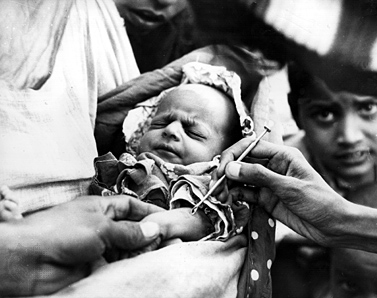
Oxford researchers accused of giving babies unsafe TB drug
Oxford researchers have been accused of deception during a large-scale tuberculosis trial.
A team of Oxford University researchers have been accused of deception and misconduct during a large-scale tuberculosis trial on African infants that began in 2009.
Professor Peter Beverley, a former senior academic at Oxford, told the BBC that scientists tested a new tuberculosis vaccine on more than a thousand infants without sharing data suggesting that monkeys given the immunisation “die rapidly”.
According to Beverley, the new vaccine, known as MVA85A, was trialled on six monkeys 10 months before a funding application was made for the clinical trial on over 2,800 babies near Cape Town, South Africa.
The preclinical monkey trial involved over a dozen monkeys who had been infected with TB. One group was given the widely used Bacillus Calmette-Guérin (BCG) jab (a standard immunisation), the second was given no immunisation and a third was given BCG plus new vaccine. By the time the human trials began, five out of six of those that received the BCG jab and the new booster vaccine together had to be put down, while just two out of the six monkeys who received only the BCG injection had died.
Despite this, an information sheet given to families in South Africa participating in the trial said the vaccine had been tested on animals and humans and was “safe and effective” in animals.
An inquiry at the University found that there had been no wrongdoing, though the report stated that it “would have been good practice for the potentially adverse reaction observed in the monkey experiment to be reported to the authorities in a more timely fashion.”
Oxford researchers accused of giving babies unsafe TB drug
Xavier Symons
Creative commons
https://www.bioedge.org/images/2008images/baby_receiving_vaccine.jpg
deception
informed consent
research ethics
vaccination
- Can machines be moral? - March 7, 2021
- Can we synthesise Christianity moral theology with secular bioethics? - November 28, 2020
- Euthanasia polling data may fail to capture people’s considered views - August 15, 2020
